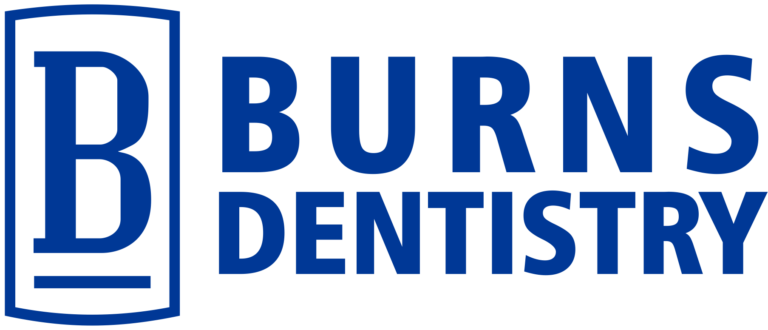Post Op Surgery Instructions in Sun City, Arizona
After surgery, proper aftercare is important as it is necessary to promote clotting and healing of the surgical site. At Burns Dentistry in Sun City and Sun City West, we will help you achieve the best possible outcome with your dental surgery.
Below you will find our most common symptoms, what to expect after certain procedures and how to best approach each of these. We also list out the best diet habits while recuperating from your surgery.
How much bleeding is normal after tooth extractions? What should I do to address bleeding?
Slight bleeding after a tooth extraction is expected. Your saliva may show a small amount of blood for up to twenty-four (24) hours.
Please leave a 2×2 piece of gauze over the surgery site for at least twenty minutes, maintaining gentle biting pressure. Do not forcefully spit or irritate the surgery site, as this may cause further bleeding. If bleeding persists, it should be controlled with pressure. (Moisten a clean gauze and place directly over the surgery site. Apply moderate biting pressure for approximately ½ hour. (Repeat if necessary) Avoid Vitamin E and Aspirin for the first 48hrs after surgery, as this can cause increased bleeding. Oozing is common for the first 24 hrs.
Note: Sinus bone graft patients may experience bleeding through the nose for up to 24 hours after surgery.
How long should I expect to experience pain after oral surgery? What can I do to deal with it?
It is not uncommon to have discomfort and pain for the first few days after surgery. Take pain medications as prescribed and needed. On the day of surgery, it is recommended to take pain medication before the numbness wears off. Even with minimal pain, it is easier to prevent pain than decrease it. Pain medications are most effective when taken before local anesthesia diminishes and normal sensation resumes.
Note: Do not take pain pills on an empty stomach. Narcotic pain medication such as codeine, oxycodone, or hydrocodone may cause nausea, vomiting, drowsiness, dizziness, itching or constipation. If these side effects occur, discontinue the medication. You may take an alternative over the counter pain medication as necessary or call our Sun City dentistry office for assistance. Note: sometimes, narcotics can be supplemented with ibuprofen (600mg) or extra-strength Tylenol (500mg) if added pain relief is needed. PLEASE ASK YOUR DENTIST BEFORE COMBINING MEDICATIONS.
Is it normal to have swelling after my oral surgery?
After surgery, swelling around the mouth, cheeks, eyes, and side of the face is very common. This is the body’s normal reaction to surgery and will eventually subside. The swelling usually will not become apparent until the day following surgery and will not reach its maximum until 2-3 days postoperatively. However, the swelling may be minimized by the immediate use of cold ice compression. Apply an ice pack to the outside of your face over the surgery site for twenty (20) minutes on and twenty (20) minutes off for the first twenty-four (24) hours. Prepare several cold packs by placing damp washcloths in small zip lock freezer bags. These should be placed in your freezer for use following surgery. Frozen bags of peas are also effective. Sleeping with your head elevated above the level of the heart for the first two days postoperatively tends to help alleviate the swelling.
Is it common to observe bruising after oral surgery?
Bruising is very common after surgery. Bruising may be present over the surgery site and to the lower chin area. The development of black, blue, green, or yellow discoloration is due to blood pooling beneath the tissues. This is a normal post-operative occurrence, which may occur 2-3 days postoperatively and last up to 14 days. Moist heat applied to the area may help the discoloration resolve quicker.
What should I do if I experience nausea after my oral surgery?
Nausea may result from anesthesia medications or the drugs prescribed for pain. To minimize this occurrence, avoid taking any medications on an empty stomach. Take all medications with a small amount of food. If you feel nauseated or sick to your stomach drink clear liquids such as Ginger Ale, 7UP, apple juice, or broth. Eating toast or a cracker may help alleviate nausea as well.
Do I need to change my oral hygiene after surgery?
Hygiene should NOT be neglected as an accumulation of food and debris may promote inflammation and/or infection. You may rinse and brush your teeth starting the day after surgery. Brush your teeth as usual and rinse with Peridex (chlorhexidine), Closys II, or warm salt water (1/2 teaspoon of salt in 12oz of water) after each meal, beginning the day after surgery. Rinse for one minute, before gently spitting it out. DO NOT RINSE VIGOROUSLY, rather pool the rinse over the surgical site. Do NOT brush the surgical area directly until your two-week post-op appointment. You can use a cotton swab dipped in Peridex to gently clean the surgical site.
Should I adjust my activity levels after oral surgery?
Limit strenuous activity for the first 2-3 days. This can help reduce bleeding and minimize swelling. Strenuous work or exercise may promote bleeding and increase swelling, which may be damaging to the surgery site and result in delayed healing.
What should I do if I’m experienceing a rise in teperature after my oral surgery?
After surgery, it is normal for the body temperature to be slightly elevated for 24 hours. Please remember to drink sufficient amounts of clear liquids to keep your body hydrated. Please contact the office if you experience a high fever or if a low-grade temperature persists after the first 24 hours.
Is it fine if I smoke after oral surgery?
Smoking will delay healing, or prevent it altogether, and predisposes you to infection which can result in the failure of the surgical site as it lessens the oxygen levels in your system. This will result in possible surgical intervention, delay in treatment, and possible failure. Do not smoke until the site has completely healed (2 weeks).
Do sutures need special treatment?
SUTURES: Sutures are placed to help minimize postoperative bleeding and aid in healing. It is important to treat the area as delicately as possible. If sutures tear, it can compromise the healing outcome or create discomfort. Some sutures are dissolvable and should disappear on their own in approximately 3-14 days depending on the type of suture used. If sutures are still present at your post-op appointment, they will be removed.
Are all the medications I am prescribed important to take?
It is very important that you take all your prescribed medications from your physician as prescribed. DO NOT DISCONTINUE ANY MEDICATIONS (especially blood thinners) UNLESS INSTRUCTED TO BY YOUR PHYSICIAN OR DENTIST. Additionally, take all medications that our office prescribes for you. Each medication plays a specific role in the post-operative period of your surgery, which will decrease the possibility of infection, swelling, and pain. Discontinue the antibiotic medication if a rash develops or if an upset stomach persists. Report this immediately to our office. Ladies, please note: if you are currently taking birth control pills, be aware that taking antibiotics will decrease the effectiveness of birth control pills and alternative methods should be utilized.
Should I wait to wear my prosthesis?
Partial dentures, flippers, or full dentures should not be worn immediately after surgery unless specifically instructed otherwise. If you have a temporary “flipper” to wear for esthetics, do not insert it until the numbness in the area and swelling resolves. When it is inserted, your appliance should not touch your surgical site or gum area where the surgery was performed. If it does, this may cause a complication or failure of the implant or bone graft in that area. If you have questions about the fit of your flipper, partial or complete denture, do not wear it until your dentist or our office can see you.
What can I expect after local anesthesia?
Beware that you will experience temporary numbness because of the local anesthesia you received during your procedure. You will not have normal feeling for a few hours so you could unknowingly injure yourself. Care should be exercised in eating and drinking any hot fluids, as you can cause injuries to the soft tissues. Ideally, eat and drink on the opposite side until the numbness subsides. If numbness persists after 24 hours, please contact our office.
If you have recieved a sinus lift:
- Do not blow your nose
- Do not smoke, vape or use smokeless tobacco
- Do not drink liquids through a straw
- Do not lift or pull on the lip to disturb the sutures
- If you sneeze, then do so with your mouth open for the next couple of days
Notify the office if the following occur:
- You feel granules in your nose
- Your medications do not relieve your discomfort
When should I see my dentist after oral surgery?
You will see your dentist typically 7-10 days after surgery to evaluate the area and then in another 1-2 weeks to check continued healing. If you ever have any questions or concerns, feel free to contact us at the office at any time!
What is a good diet to follow post oral surgery?
A nutritious diet following dental surgery is an essential part of a quick and healthy recovery. It is important that you maintain a diet of soft, nutritious foods to help speedy healing, to lessen discomfort and to maintain good overall health. If you have surgery on one side of your mouth, chew your food on the other side for the first week.
A balanced diet consists of protein, fruits, vegetables, starches, and healthy fats. Whether eating a liquid diet or a soft diet after surgery, you should balance your nutrition intake to ensure you are getting adequate nutrients. Adequate dietary protein will aid in your healing process. Therefore, make protein as part of each meal, for example, adding protein to a smoothie or greek yogurt.
DIET DAY 1: You may not be hungry or may not be able to chew semi-solid or solid foods due to tenderness and swelling in your mouth, however it is important to eat to avoid dizziness and an upset stomach. It is even more important to eat if you had IV sedation to help recover. Examples of food may include yogurt, apple sauce, jello, ice cream. Additionally, you should attempt to drink 48 to 64 oz. (6-8 cups) of liquids daily. Avoid acidic foods such as tomatoes and orange juice for two weeks or until the site has healed.
After surgery, drink lots of clear liquids and eat soft nutritious foods. Avoid acidic foods such as tomatoes, orange juice, and citrus fruits until the surgery site has healed (2weeks). Do not drink through a straw for at least 48 hours.
HOW TO EAT: You may find chewing slow, difficult, and uncomfortable soon after your surgery. This is completely normal and will resolve within a few short days. It may be easier for you to eat a few small meals throughout the day rather than three larger meals.
WHAT TO EAT: In the days immediately following implant surgery, it is recommended that you eat soft foods and avoid any hard or crunchy foods that can disturb the surgical area. The following are some suggested foods from the basic food groups that are appropriate for a soft food diet.
MILK GROUP (2 OR MORE SERVING/DAY): Whole, skim milk, buttermilk yogurt, cottage cheese, ice cream
MEAT GROUP (2 OR MORE SERVING/DAY): Broiled lean beef, ground, minced, or pureed meat, soft fish, tuna, salmon, shrimp, scrambled eggs.
VEGETABLES / FRUIT (4 OR MORE SERVING/DAY): Stewed, pureed fruits and vegetables, vegetable juices, soup. Be careful with fruit as many are acidic and may irritate the surgery site
BREAD / CEREAL (4 OR MORE SERVING/DAY): Hot or cold cereals, cream of wheat, soft bread

